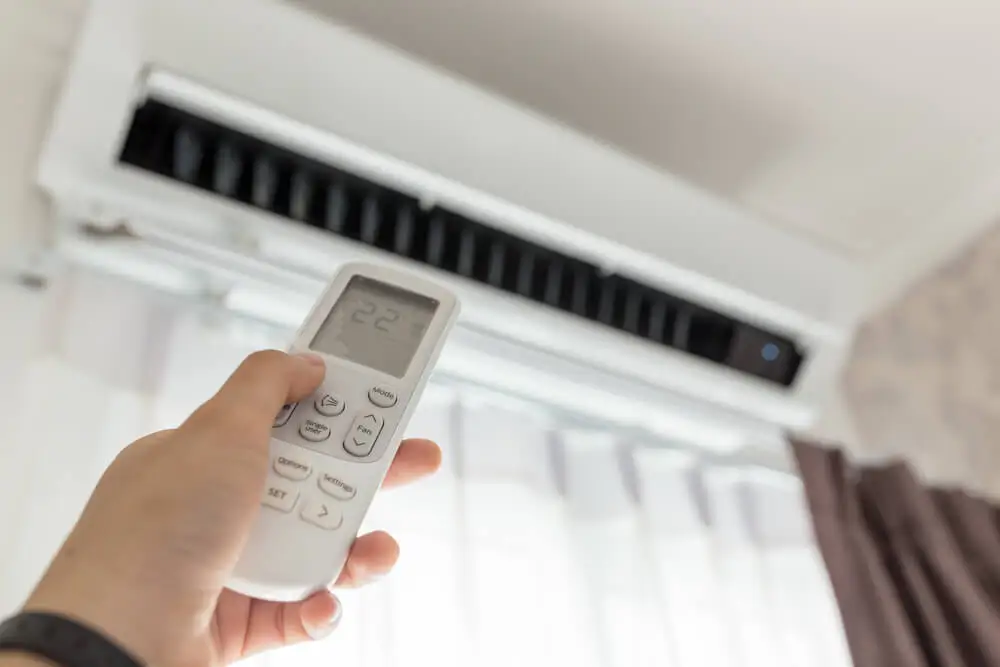The Health Effects of Sudden Changes in Temperature


Written and verified by the doctor Leonardo Biolatto
Sudden changes in temperature may be associated with various health factors. We know that they’re usually influenced by the change of seasons and climate change that alters natural cycles. The truth is that going from cold to heat or from heat to cold can alter and affect our health.
The body has a natural system that regulates temperature and depends on the balance between heat production and heat loss. Three mechanisms are involved in this process:
- Thermoreceptors are located in the skin and the preoptic nucleus of the hypothalamus
- Sweating and peripheral vasodilation
- The control area in the brain
There are many circumstances that can cause alterations in thermoregulation. For example, exposure to low ambient temperatures can cause accidental hypothermia if there’s a drop of more than 35 °C in the body.
Sudden temperature changes: How does sudden heat affect the body?
When the outside temperature rises, the human body reacts and activates its thermoregulatory mechanism to cool itself. However, sometimes the sweating that occurs for this purpose is not enough to cool the body, which can lead to a dangerous rise in body temperature.
For example, heat stroke is one of the disorders that you can suffer from. It’s considered one of the most serious heat injuries and occurs most frequently during the summer months when it reaches over 40 °C (104 °F). Hyperthermia is a life-threatening emergency.
Symptoms of heat stroke include a fever, agitation, dry skin, excessive sweating, nausea, and vomiting. Red skin, rapid pulse, severe headache, and fainting may also occur.
Among its causes is exposure to hot environments during an exercise routine or even at rest, which is known as heat stroke without effort. However, the consumption of some medications can also reduce the amount of blood pumped by the heart, limiting the flow of blood to the skin. This condition can be fatal when there’s a sudden increase in heat.

We think you may also enjoy reading this article: When Is a High Body Temperature Considered Serious?
How does sudden cold affect our health?
On the other hand, we find that cold weather contributes to the development of respiratory and cardiovascular pathologies. Low temperatures can cause blood vessels to undergo narrowing or vasoconstriction.
This condition affects blood pressure and heart rate. In addition, in people who have cardiovascular health risks, it increases the likelihood of myocardial infarction and thrombus formation.
When this vasoconstriction occurs in the nasal area, the mucus becomes thicker and the chances of eliminating microorganisms are reduced. In addition, the cilia of the respiratory system, small microscopic bristles, reduce their movement, making it more difficult to eliminate mucus and viruses that may colonize the mucosa.
On the other hand, cold temperatures affect the capacity of the immune system. This may be linked to vasoconstriction, but also to the difficulty in synthesizing vitamin D.
The decrease in sunlight hours characteristic of winter may also generate certain psychological manifestations. This is because the synthesis of certain neurotransmitters such as serotonin and dopamine decreases. The reduction of these substances tends to generate apathy, listlessness, and less physical activity.
Viruses and bacteria like cold air
When the temperature drops, there’s also a reduction of humidity in the environment, which favors the proliferation of viruses and bacteria. It’s not the cold itself that causes flu or allergies. In reality, this is a climate that promotes the colonization of microorganisms.
In fact, a study showed that cold temperatures, as well as dry air, increase the risk of contracting rhinovirus infections, one of the main causes of colds.
However, it’s not that there are no viruses during the summer. What happens is that warm climates and higher humidity slow down their access to the respiratory system. This minimizes the chances of them spreading.
We think you may be interested in reading this, too: How Extreme Temperatures Affect the Human Body
The effects of air conditioning and heating on health
It’s normal in summer to overuse air conditioning in homes, offices, restaurants, and other enclosed spaces. For many people, being in a cool place outside is a great comfort. Something similar happens in winter when the heating is turned on.
However, these sudden changes in temperature affect our health and can produce seasonal colds and allergies. The Spanish Society of Otorhinolaryngology and Head and Neck Surgery (SEORL-CCC), for example, warns that the use of air conditioning is one of the main triggers of throat problems during the summer.
This institution specifies that the abrupt change in the environment contributes to the appearance of diseases such as pharyngitis and laryngitis. These are the most frequent causes of medical consultation and consumption of antibiotics.
However, heating also has its problems, because it can dry out the environment too much. This causes an itchy throat and coughing because the respiratory tract becomes irritated. A lack of humidity and nasal dryness are the ideal environment for the proliferation of bacteria and viruses. Children are the most affected, according to a study.

How to take care of sudden changes in temperature?
To avoid the effects of sudden changes in temperature, some precautions can be taken, especially when they happen because of heating or air conditioning. The main key is not to abuse these appliances.
You can also take the following measures:
- Don’t get too warm in places where there is heating to facilitate the transit to the cold environment.
- Regulate the temperature at home and in the office to 21 to 23 degrees.
- Take a coat with you in case the ambient temperature suddenly drops.
- Wear sunscreen, a hat, or a parasol in the summer.
- Avoid going directly into air-conditioned places; wait to acclimatize a little before doing so.
- Hydrate yourself during the day, especially if you go out for exercise.
- Wear appropriate clothing, depending on the season of the year.
- Maintain a good diet and good sleeping habits to strengthen your immune system.
- Wash your hands with soap and water frequently.
- Avoid places with poor ventilation.
We often can’t control sudden temperature changes
The only sudden temperature changes that can be foreseen are those related to air conditioning and heating. Otherwise, it’s impossible to do so when it comes to the weather. Even so, to avoid affecting our health, we can take precautions such as those mentioned above.
All cited sources were thoroughly reviewed by our team to ensure their quality, reliability, currency, and validity. The bibliography of this article was considered reliable and of academic or scientific accuracy.
- E. Lizarralde Palacios, A. Gutiérrez Macías, M. Martínez Ortiz de Zárate. Alteraciones de la termorregulación. emergencias 2000;12:192-207. Disponible en: http://www.sld.cu/galerias/pdf/sitios/anestesiologia/alteraciones_termoregulacion.pdf
- Golpe de calor. Mayo Clinic.
- Vasoconstricción. Medlineplus.
- Ikäheimo, T. M., Jaakkola, K., Jokelainen, J., Saukkoriipi, A., Roivainen, M., Juvonen, R., Vainio, O., & Jaakkola, J. J. (2016). A Decrease in Temperature and Humidity Precedes Human Rhinovirus Infections in a Cold Climate. Viruses, 8(9), 244. https://doi.org/10.3390/v8090244
- El uso del aire acondicionado incrementa los problemas de garganta en verano. Sociedad Española de
Otorrinolaringología y Cirugía de Cabeza y Cuello (SEORL-CCC). - Carlos Ubilla, Karla Yohannessen. CONTAMINACIÓN ATMOSFÉRICA EFECTOS EN LA SALUD RESPIRATORIA EN EL NIÑO. Revista Médica Clínica Las Condes. Volume 28. Issue 1, 2017. Pág. 111-118. SSN 0716-8640. https://doi.org/10.1016/j.rmclc.2016.12.003.
This text is provided for informational purposes only and does not replace consultation with a professional. If in doubt, consult your specialist.








